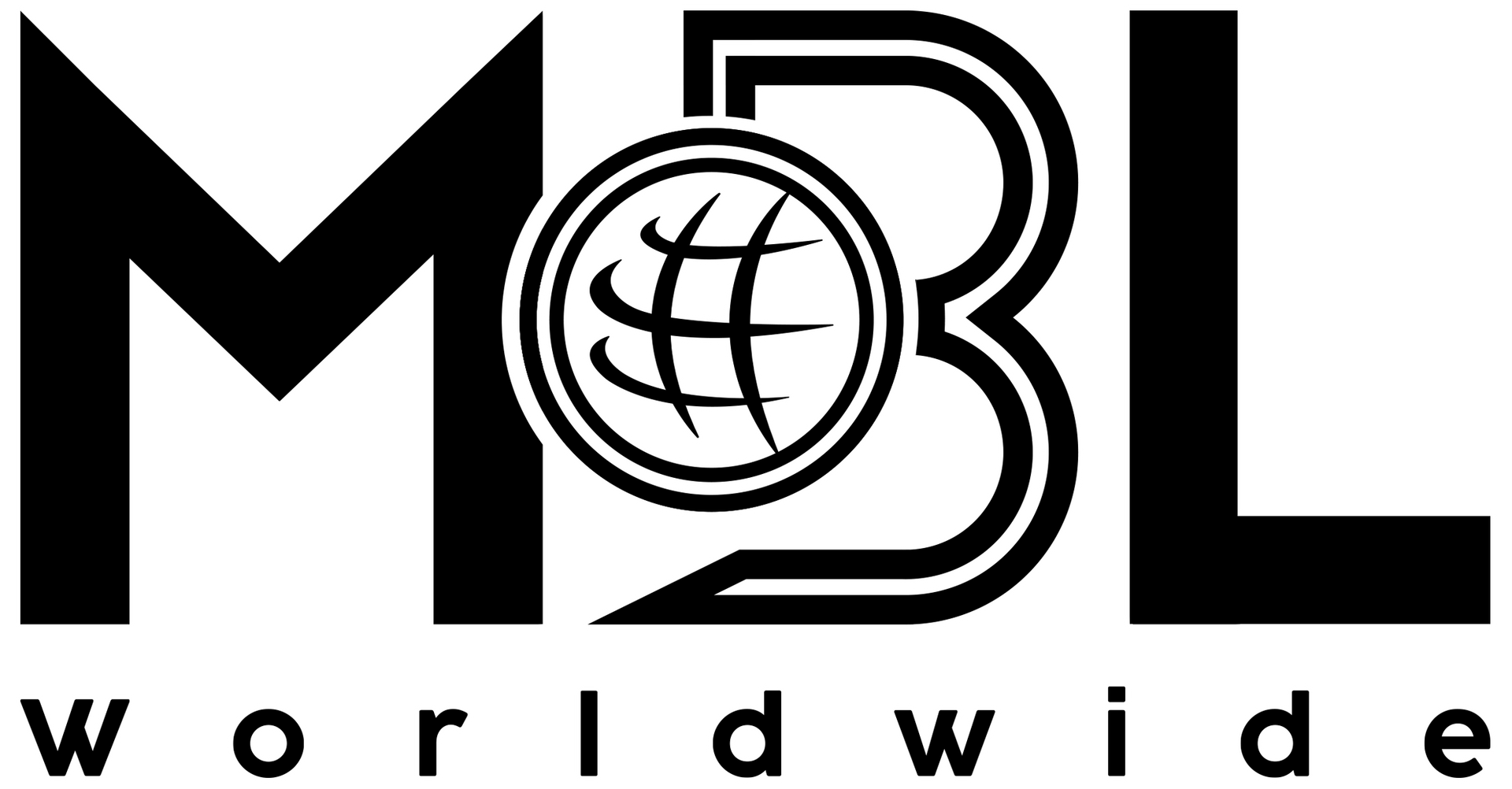From EXW to DDP: What You Need to Know About Incoterms
MBL Blogging Team
Navigating international shipping can be complicated, with every stage of a shipment carrying unique responsibilities. One of the most critical aspects of international trade is understanding Incoterms – a set of globally recognised rules that define who is responsible for costs, risks, and tasks involved in the delivery of goods. In this guide, we’ll break down what Incoterms are, why they’re important, and what you need to know about some of the most commonly used terms.
What Are Incoterms?
Incoterms, short for “International Commercial Terms,” are a set of 11 standardised terms developed by the International Chamber of Commerce (ICC). These terms provide clarity and reduce miscommunication in global trade by clearly defining who bears responsibility and risk at each stage of the shipping process. Incoterms apply to the delivery of goods in a sale contract, and although they don’t cover everything (like title transfer or payment terms), they’re fundamental for handling logistics and shipping risks.
Why Incoterms Matter
Using the correct Incoterm can prevent misunderstandings and disputes by clarifying the obligations of both buyers and sellers. For example, they help determine who arranges and pays for transport, insurance, and import/export clearance. This clear delineation helps manage risks and costs effectively and ensures that shipments arrive with fewer disruptions.
Key Incoterms to Know
1. EXW (Ex Works)
• What It Means: The seller makes goods available at their premises, and the buyer is responsible for all transportation and risks from there.
• Best For: Buyers who are experienced with managing logistics or have a reliable freight forwarder.
• Considerations: The buyer takes on significant responsibility, including export clearance, which can be complex in certain countries.
2. FCA (Free Carrier)
• What It Means: The seller delivers goods to a carrier or another specified location, with responsibility and risk transferring to the buyer at that point.
• Best For: Sellers who want some control over initial transport while leaving the remaining logistics to the buyer.
• Considerations: FCA is flexible, as it applies to any mode of transport and is often preferred for air and road shipments.
3. CIF (Cost, Insurance, and Freight)
• What It Means: The seller covers the cost of shipping and insurance up to the port of destination, but the risk transfers to the buyer once goods are loaded on the vessel.
• Best For: Buyers who want the seller to handle shipping arrangements but can manage risk once the goods are loaded.
• Considerations: CIF is only applicable for sea and inland waterway transport.
4. FOB (Free On Board)
• What It Means: The seller handles export clearance and delivery to the vessel, with risk transferring to the buyer once the goods are on board.
• Best For: Both parties involved in sea freight, as FOB offers a clear handover point.
• Considerations: As with CIF, FOB is only suitable for sea and inland waterway shipments.
5. DAP (Delivered at Place)
• What It Means: The seller is responsible for delivering goods to the buyer’s specified location, excluding import duties and taxes.
• Best For: Buyers who prefer the seller to handle most of the shipping process.
• Considerations: The buyer is responsible for import clearance and any associated costs.
6. DDP (Delivered Duty Paid)
• What It Means: The seller covers all costs, including import duties and taxes, delivering the goods to the buyer’s location with all responsibilities handled.
• Best For: Buyers who want a simple delivery process, with all logistics handled by the seller.
• Considerations: DDP can be costly for sellers, as they bear all transport, customs, and duty charges up to the buyer’s location.
Choosing the Right Incoterm for Your Needs
Selecting the right Incoterm depends on factors such as the nature of the goods, shipping destination, costs, and how much control each party wants over the shipping process. For example:
• If the buyer prefers to manage logistics: Incoterms like EXW and FCA allow the buyer more control over the shipment and costs.
• If the seller wants to handle the entire delivery: Incoterms like DDP and DAP are ideal, especially when delivering to international buyers who may be unfamiliar with local import processes.
• For sea freight: Terms like FOB and CIF are specific to waterway transport, while others apply to any mode.
Final Thoughts on Incoterms
Understanding Incoterms is essential for anyone involved in international trade. By choosing the right Incoterm, both buyers and sellers can enjoy a smooth shipping experience with fewer surprises. Whether you’re an importer wanting complete control over your shipments or an exporter looking to provide a seamless delivery experience, selecting the correct Incoterm will ensure both parties know their responsibilities, costs, and risks.

We know there’s a lot of interest — from individual enthusiasts to specialist suppliers — in bringing Land Rover chassis and parts over from the UK. But clear information on the process? Still pretty hard to come by. At MBL Worldwide, we’re a UK-based shipping and logistics company with solid experience handling full shipments of vehicle parts to Canada and the USA — including many chassis jobs over the years. We take care of the entire process from start to finish: ✅ UK collection ✅ Export paperwork ✅ Sea freight ✅ Customs clearance ✅ Final delivery Whether you’re rebuilding a classic Land Rover or managing stock for a business, we can handle everything for you — no guesswork, no border headaches, just a smooth, professional service. If you’re thinking about importing a chassis, or any other large vehicle parts, get in touch — we’ll talk you through how it works and give you a clear idea of the cost. 📧 Email us at shipping@mblworldwide.co.uk 🌐 Or contact us through our website: www.mblworldwide.co.uk Let’s get your shipment moving.

The Strategic Importance of the Suez Canal The Suez Canal has long been a critical artery in global shipping, providing a shortcut between the Indian Ocean and the Mediterranean Sea. It significantly reduces the journey for ships traveling between Europe and Asia, saving both time and fuel costs. The canal handles roughly 12% of global trade and is a vital link in the supply chain, making its stability crucial for international commerce. For a major player like Maersk, avoiding this route represents a substantial shift in their operational strategy, underscoring the seriousness of the current security risks. Rising Risks in the Red Sea Region The decision by Maersk to avoid the Suez Canal is directly tied to the increase in hostilities in the region, particularly the Red Sea. Houthi militants, a Yemen-based group involved in an ongoing conflict with the Yemeni government and its allies, have targeted maritime vessels in the region. The threats and attacks have created a high-risk environment for shipping companies operating in these waters, and Maersk’s response reflects a cautious and prudent approach. Attacks on cargo ships in the Red Sea are not new; however, their recent increase in frequency and intensity has forced shipping companies to reconsider their routes. The cost of potential damage, heightened insurance premiums, and increased security measures are considerable. For Maersk, these risks have prompted the decision to reroute its vessels away from the Suez Canal, despite the additional time and expense this decision entails. Alternative Routes and Their Challenges Avoiding the Suez Canal requires a considerable rethinking of shipping routes. The alternative path around the Cape of Good Hope at the southern tip of Africa adds thousands of miles to the journey between Europe and Asia. This longer route requires more fuel, increases transit times, and impacts the operational costs for shipping lines, which can translate to higher costs for goods transported. For Maersk, however, safety remains paramount, and the choice to detour around Africa instead of risking exposure to attacks in the Red Sea region underscores a commitment to secure, reliable service. It’s also likely that other companies will follow Maersk’s lead, especially if instability continues in the region. Increased shipping traffic around the Cape could have implications for port congestion and the availability of berths, further impacting the global logistics chain. Implications for the Global Supply Chain Maersk’s strategic shift away from the Suez Canal will likely have ripple effects throughout the global supply chain. Longer transit times and increased costs could impact the availability and pricing of certain goods, particularly those dependent on expedited shipping. Industries reliant on time-sensitive shipments may face delays, and consumers could see higher prices on imported goods as shipping costs rise. This adjustment also highlights the need for flexibility within the supply chain. As companies adapt to these changes, they may seek alternative solutions, such as increased use of air freight for high-priority shipments or investment in local manufacturing to reduce dependence on long-haul transport. The situation underscores the importance of having contingency plans in place to address disruptions in critical trade routes. The Road Ahead for Maersk and Global Shipping Maersk’s decision not to resume use of the Suez Canal until at least 2025 reflects the realities of operating in a region marked by conflict and uncertainty. While the longer route around Africa presents challenges, the emphasis on security and predictability is essential for a company of Maersk’s scale and reputation. As tensions persist, shipping companies must continue to evaluate the safety of their routes and remain agile in responding to geopolitical changes. In the face of such complex dynamics, Maersk’s strategic response serves as a reminder of the resilience and adaptability required in the logistics sector. The coming years may see further innovations and shifts in how companies navigate around conflict zones, safeguarding both their assets and the integrity of the global supply chain.

Air Freight: Speed and Precision Best for: Urgent shipments, high-value items, and lightweight goods Air freight is the fastest option, ideal when timing is critical. If you’re shipping perishable goods, high-value electronics, or products for a tight deadline, air freight ensures they arrive quickly and safely. However, it’s also the most expensive mode due to fuel costs and limited cargo space. Pros: • Speed: Air freight is unrivalled for fast delivery, often arriving within days. • Reliability: Airlines have set schedules, and weather-related delays are often shorter than for sea or road transport. • Security: High levels of security at airports reduce the risk of theft or damage. Cons: • Cost: Air freight is typically the most costly option. • Weight Restrictions: There are strict weight limits, so it’s less suited for bulky cargo. When to Use Air Freight: Choose air if speed is your priority and budget allows. It’s ideal for urgent shipments, high-value goods, and light, compact items. Sea Freight: Cost-Effectiveness and Capacity Best for: Large shipments, heavy goods, and non-urgent items Sea freight is the most economical choice for transporting large volumes over long distances. Goods are shipped in containers, which can be shared (LCL – Less than Container Load) or used exclusively (FCL – Full Container Load), making it flexible and cost-effective. Pros: • Cost: Sea freight has a lower cost per unit, making it economical for heavy or large shipments. • Capacity: Ships can handle vast quantities, from industrial machinery to large retail stock. • Eco-Friendly: Sea freight has a lower carbon footprint than air freight. Cons: • Speed: Sea freight is slow, with transit times often ranging from weeks to months. • Weather Dependency: Adverse weather can cause delays at sea or at ports. • Complex Customs Process: Import and export regulations are often complex for sea shipments, particularly for certain types of cargo. When to Use Sea Freight: Sea freight is ideal for large, non-urgent shipments. If you’re shipping bulk items, machinery, or products with a longer lead time, sea freight provides excellent value. Road Freight: Flexibility Across Domestic and European Routes Best for: Domestic shipments, European cross-border deliveries, and locations without easy access to ports or airports. Road freight offers flexible, door-to-door delivery within the UK and across Europe. It’s ideal for short to medium distances and works seamlessly as the final leg for shipments arriving by air or sea. Pros: • Flexibility: Road freight provides door-to-door service, connecting remote locations with cities across the UK and Europe. • Cost-Effective for Short Distances: For domestic and nearby European routes, road freight is economical. • Versatile Cargo Options: Trucks can carry a range of items, from pallets to oversized equipment. Cons: • Distance Limitations: Road transport is less feasible for long-haul, intercontinental shipping. • Traffic and Regulatory Delays: Delays due to traffic, road restrictions, or border checks can occur, especially on cross-border European routes. • Environmental Impact: Road freight has a higher carbon footprint than sea freight for long distances. When to Use Road Freight: Road freight is ideal for short-haul routes, domestic shipments, and European cross-border transport. It also complements air or sea shipments as a final-leg solution to reach specific locations within Europe.

